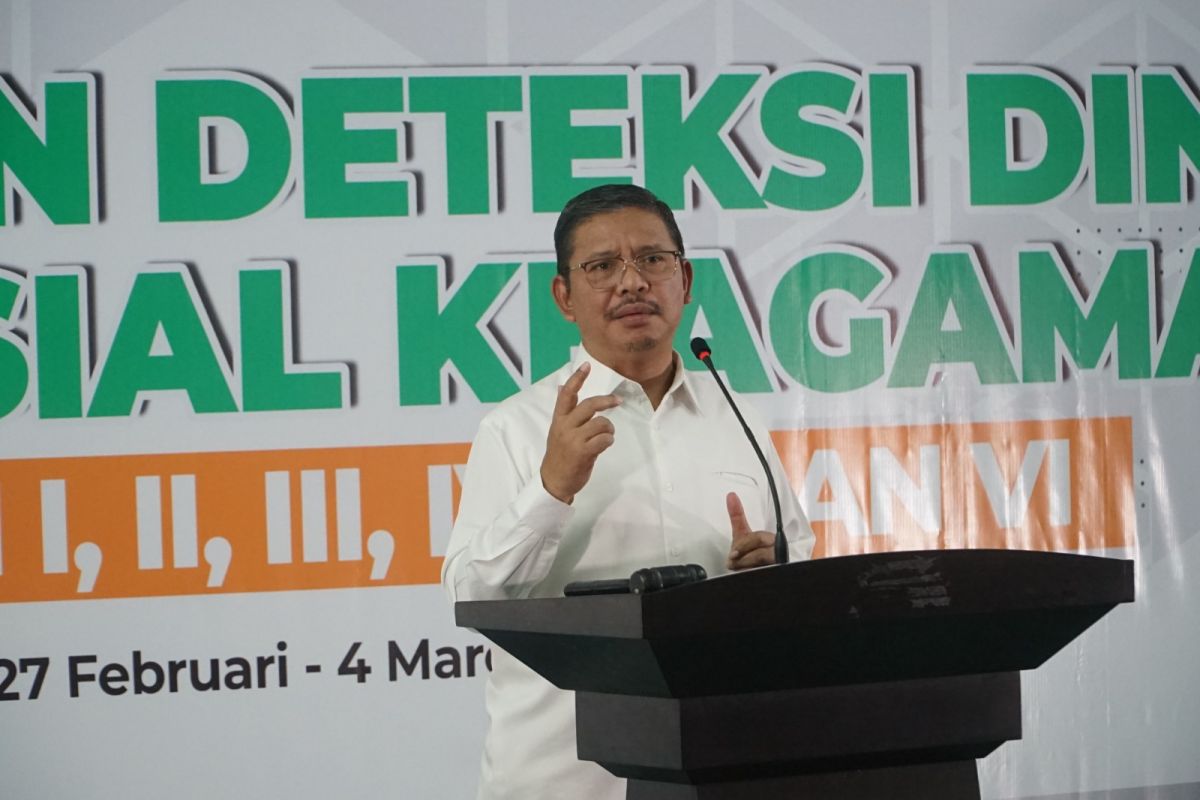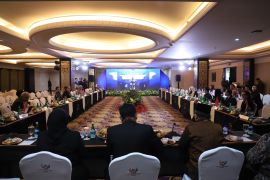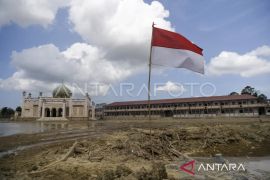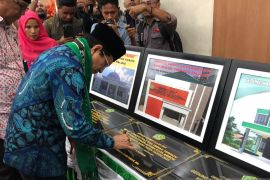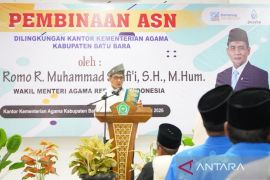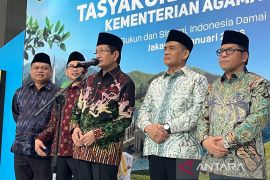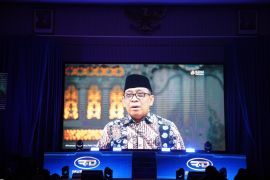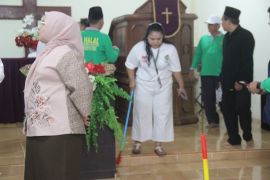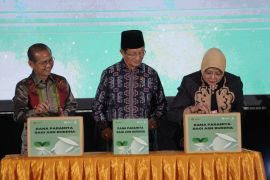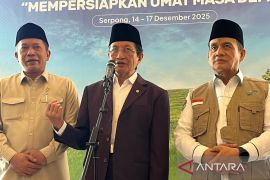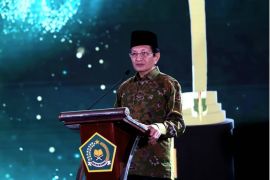The early detection of social-religious conflicts means knowing how to take preventive and mitigation attempts as well as to be able to map the problemsJakarta (ANTARA) - The Education and Training Center (Pusdiklat) of the Religious Affairs Ministry is conducting a training in two batches for a total of 400 participants to detect early on the potential for social-religious conflicts.
"(The potential for) religious and people-based conflicts must be detected as soon as possible. Thus, before the conflict arises (becomes bigger), we are able to prevent it (from getting worse)," Head of the ministry’s Research, Development, and Training Agency, Suyitno, stated.
As quoted from a statement on Tuesday, he noted that Indonesia can potentially experience social-religious conflicts due to its diverse religions, ethnicities, and languages. Hence, his side seeks to prevent the occurrence of conflicts.
“(The early detection of social-religious conflicts means) knowing how to take preventive and mitigation attempts as well as to be able to map the problems," Suyitno remarked.
He expects that the training participants would be able to acquire skills to detect any potential for conflict and apply them to provide reports to the ministry regarding the social-religious condition of the community.
Head of the Center for Educational and Religious Technical Personnel at the ministry, Mastuki, stated that the curriculum used in the training was designed by an expert team.
"This training for early detection of social conflict is included in Pusdiklat’s flagship program that uses a policy-based training approach," he stated.
Related news: Create, carry out programs to resolve religious problems: Minister
The training is being conducted in two batches. The first batch is being held from February 27 to March 4, 2023, while the second one will be conducted on March 6-11, 2023.
Mastuki remarked that there were 202 and 198 participants respectively in the first and second batch.
He noted that the training is attended by the heads for Islamic Community Guidance, heads for Christian Community Guidance, heads for Catholic Community Guidance, heads for Hindu Community Guidance, heads for Buddhist Community Guidance, and heads for Confucian Community Guidance from all provincial Religious Affairs Offices.
The other participants include the administrators of houses for religious moderation in all Islamic tertiary educational institutions; vice-chancellor or deputy chairman for student affairs of non-Islamic tertiary educational institutions; as well as echelon II representatives of the Religious Affairs Ministry.
Representatives of the Communication Forum of Inter-Religious Communities (FKUB) in the Greater Jakarta area as well as representatives of Guidance Working Groups (Pokjaluh) of all religions throughout Jakarta also partook in the training.
Related news: Religious harmony problems should be considered: DPD
Translator: Asep Firmansyah, Uyu Liman
Editor: Yuni Arisandy Sinaga
Copyright © ANTARA 2023
